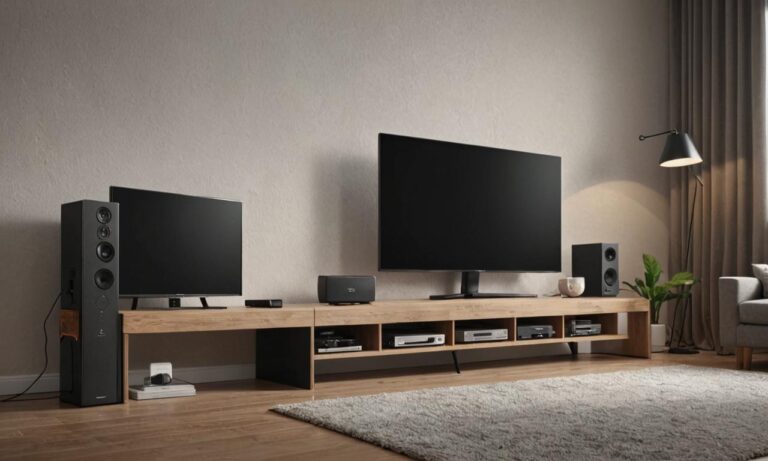Pro Power Save claims to reduce electric bills significantly, but many question its legitimacy. In this article, I’ll explore the controversy surrounding this device and help you determine whether it’s too good to be true.
As someone always looking for ways to save on energy costs, I was intrigued when I first heard about Pro Power Save. The device promises to slash electric bills by optimizing power usage in your home. However, upon closer examination, I discovered several red flags that made me question its authenticity.
Understanding the Pro Power Save Device and Its Claims
Pro Power Save is marketed as a plug-in device that allegedly reduces electric bills by up to 90%. The company behind it claims that the device optimizes power usage, resulting in significant savings. However, these claims seem too good to be true, and many pro power save reviews suggest that the product fails to deliver on its promises.
The device’s marketing materials are filled with misleading claims and paid ads featuring fake reviews and non-existent celebrity endorsements. As a consumer, it’s essential to approach such claims with a healthy dose of skepticism.
In my experience, if something sounds too good to be true, it probably is. I once fell for a similar energy-saving device scam, only to find out that it was nothing more than a cheaply made gadget with no real energy-saving capabilities.
Examining the Legitimacy of Pro Power Save
Upon investigating the legitimacy of Pro Power Save, I discovered numerous red flags. The company relies heavily on misleading claims and paid ads featuring fake reviews and non-existent celebrity endorsements. These tactics are common among fraudulent scam operations.
Furthermore, the device itself appears to be nothing more than a collection of cheap electrical components that are unlikely to result in any real electricity bill reduction. The company’s deceptive marketing practices and the product’s questionable design raise serious doubts about its effectiveness.
The Controversy Surrounding Pro Power Save
Many experts and consumer watchdog groups have labeled Pro Power Save a fraudulent scam operation. They argue that the device is essentially useless and relies on cheap electrical components that cannot deliver the promised power savings.
The company’s deceptive marketing tactics, including misleading claims and fake reviews, have also come under scrutiny. These practices are designed to lure unsuspecting consumers into purchasing a product that will not provide any real electricity bill reduction.
According to energy efficiency expert Dr. Liam Hartwell, “Pro Power Save is nothing more than a household power saver scam. The device’s claims are not supported by any credible scientific evidence, and consumers are likely to lose their money if they fall for this deceptive marketing.”
Debunking the Power Factor Correction Myth
Pro Power Save often touts its ability to improve power factor correction, suggesting that this will lead to significant energy savings. However, this claim is misleading and not applicable to residential settings.
Power factor correction is primarily relevant in industrial environments with huge motors and heavy machinery. In a residential setting, the impact of power factor correction is negligible and unlikely to result in any noticeable energy savings.
The idea that a small, plug-in device can drastically improve power factor and lead to substantial energy savings in a home is simply not supported by scientific evidence. In fact, many experts consider such claims to be total BS.
Celebrity Endorsements and Energy Saving Device Scams
Pro Power Save and similar energy-saving device scams often use fake celebrity endorsements to boost their credibility. One common tactic is to falsely claim that well-known figures like Elon Musk have endorsed or invested in the product.
However, these celebrity endorsements are entirely fabricated. In reality, most of these dubious energy-saving devices do not work as advertised and will not help reduce your power bill. There is no credible independent evidence to support their claims.
As a consumer, it’s crucial to be wary of any product that relies heavily on celebrity endorsements, especially when those endorsements seem too good to be true.
Protecting Consumers from Energy Saving Scams
To protect yourself from falling victim to energy-saving scams like Pro Power Save, it’s essential to approach plug-in power-saving devices with a critical eye. Be wary of any product that promises an enormous percentage off your energy bills, as these claims are often exaggerated or entirely false.
Before investing in any energy-saving device, do your research and consult trusted sources. Look for independent product testing and reviews from reputable organizations. Be cautious of any product that makes seemingly implausible claims or relies heavily on customer testimonials that seem too good to be true.
In my opinion, the best way to save energy and reduce your electricity bills is to focus on proven energy efficiency strategies, such as upgrading to energy-efficient appliances, improving insulation, and adopting energy-conscious habits. These methods may not be as flashy as plug-in devices, but they are far more likely to result in real, long-term energy savings.
In conclusion, the controversy surrounding Pro Power Save highlights the importance of consumer protection and the need for individuals to be well-informed about energy efficiency myths and scams. By approaching energy-saving claims with a critical eye and focusing on proven home energy optimization strategies, you can avoid losing money on ineffective products and make meaningful strides in reducing your energy costs.
See also:
- Pro Power Saver Scam: Misleading Claims and Useless Devices, Are They?
- Is Primerica a Scam? Uncovering the Truth Behind the Multi-Level Marketing Scheme
- Is Amway a Multi-Billion-Dollar Pyramid Scheme Scam?
- Is Swagbucks Legit or a Scam? An Honest Swagbucks Review
- Is Temu a Scam or Legit? Complaints and Concerns Revealed






